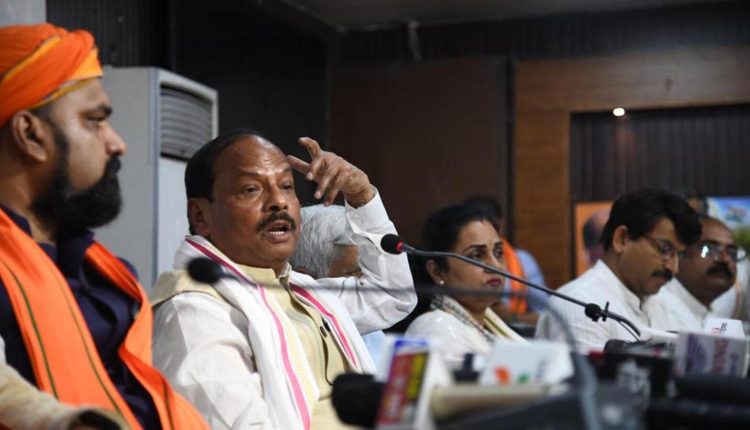Former Jharkhand chief minister Raghubar Das on Saturday demanded a judicial inquiry into the police lathi-charge on Bharatiya Janata Party (BJP) leaders and workers in Patna on July 13 and alleged that it was a state-sponsored, deliberate assault on the “peaceful march”.
Das, who is also the national vice-president of the BJP, was talking to reporters at the BJP office in Patna after meeting with party leaders and workers injured in the incident and undergoing treatment at different hospitals. “One of the party leaders, Vijay Kumar Singh, of Jehanabad has died in the lathi-charge,” he claimed.
Das is leading the party’s fact-finding team, comprising parliamentarians Manoj Tiwari, VD Ram and Sunita Duggal. “We are going to meet the deceased family in Jehanabad,” he said.
The probe team, set up by BJP president JP Nadda, earlier met party MP Janardan Prasad Sigriwal, who is being treated at the IGIMS for injury, scores of party workers at two other hospitals and recorded their statements on the attack. “We will submit the report to the party chief in the next two-three days,” said Das.
VD Ram, also a former director general of police (DGP), claimed he had never seen police personnel attacking the political activists. “As many as 20 police personnel were together thrashing an individual leader. This requires a judicial probe,” he said.
BJP leaders, meanwhile, staged demonstrations at district headquarters across the state on Saturday in protest against the lathi-charge.
State BJP chief Samrat Chaudhary, addressing the party workers at the BJP office, said people of the state would give a befitting reply to the dictatorial dispensation.
Rashtriya Janata Dal (RJD) national spokesman Manoj Kumar Jha, however, countered BJP’s allegations and asked why BJP leaders were carrying chilly powder sacks when it was a peaceful march. “Why did they (BJP leaders) stray from their original route and clashed with the police after entering the prohibited zone,” asked Jha, alleging that the BJP never cared for development of the state, and instead used the people for bolstering their political prospects.



